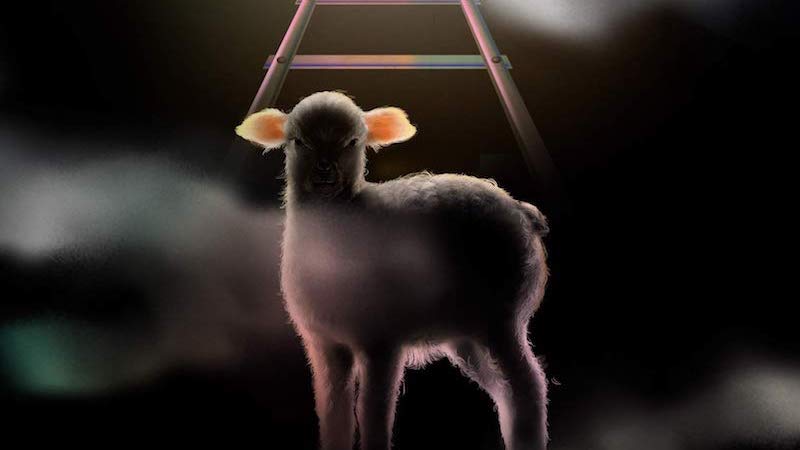
The cream of the review crop this week includes Parul Sehgal on Yiyun Li’s Must I Go, Nathan Deuel on Laura van den Berg’s I Hold a Wolf by the Ears, Stephen King on Lauren Beukes’ Afterland, Ryu Spaeth on Thomas Chatterton Williams’ Self-Portrait in Black and White, and Imani Perry on Natasha Trethewey’s Memorial Drive: A Daughter’s Memoir.
*
“There’s an echo of the epigraph from Where Reasons End, a line from Elizabeth Bishop: ‘Argue argue argue with me.’ The books bleed into each other. Their titles could run together in a single despairing sentence, a mission statement of sorts: Where reasons end, must I go. Where the previous book is stripped down, a bundle of exposed nerves, Must I Go is upholstered with the nested narratives, intricate back stories and details of a historical novel. For all their differences, their concerns are knotted together. They reach into realms that the author and characters feel are unspeakable: What is this perplexing obligation to endure? What are the limits and consolations of language? What is the self that can survive the death of a beloved child? Do we still call that existence life? They are among the loneliest books I’ve ever read—if they are merely books. At times they seem more like ruins; the chipped sentences and broken structures let you see all the devastated, discarded certainties. ‘I am writing with my burnt hand about the nature of fire,’ the novelist Ingeborg Bachmann once wrote. With Li too, there is that feeling—her books are documents of survival but they bear wounds as a body might … Little happens, but I’ve always found the openness, the near shapelessness of Li’s work to be part of its beauty. Her characters are never coerced; they are patiently observed, they are allowed to live, allowed to disappoint. The core of Must I Go is the same as that of Where Reasons End: Again, we see a mother desperately trying to prolong her conversation with the dead, to keep her child close. The new book is bloated and unwieldy, however; it lacks the blunt power of its predecessor, which was stark and swift, flensed of artifice. There is a strange feeling of watching Li retreating into a form and narrative structure she has outgrown and outpaced.”
–Parul Sehgal on Yiyun Li’s Must I Go (The New York Times)

“The terrain of Van den Berg’s difficult, beautiful and urgent new book, I Hold a Wolf by the Ears, is an ecosystem of weird and stirring places you’ll want to revisit, reconsider, maybe even take shelter in. It’s easy to get going, because Van den Berg is such a master of setups … Possessing some of Karen Russell’s spookiness and Otessa Moshfegh’s penchant for unsettling observations about the way we live now—personally incisive but alive with a kind of ambient political intelligence—Van den Berg feels like the writer we not only want but maybe need right now … There is range here, particularly in characters and relationships: single people, mothers and daughters, loners, but also people engaged in the long dance of marriage … Van den Berg is so consistently smart and kind, bracingly honest, keen about mental illness and crushing about everything from aging to evil that you might not be deluded in hoping that the usual order of literary fame could be reversed: that an author with respectable acclaim for her novels might earn wider recognition for a sneakily brilliant collection of stories.”
–Nathan Deuel on Laura van den Berg’s I Hold a Wolf by the Ears (The Los Angles Times)
“Beukes is too wise and story-oriented to wham away at ideas that have been thoroughly explored, sometimes at tedious length, on cable news and social media. She lets her tale do the talking, and the results are quite splendid. This is your basic neo-noir, coast-to-coast chase novel, and Beukes, who is from South Africa, sees America with the fresh eyes of an outsider … Cole and Miles/Mila…are being chased by the Department of Men, a kind of female Gestapo dedicated to a new law called reprohibition that basically forbids women to get pregnant by the few men still available to do the job. This might seem like a shaky proposition in a world close to becoming one sex only, but Beukes almost makes it sensible … Reprohibition offers Beukes the chance to incorporate all sorts of interesting (and often amusing) possibilities into her fiction, although it would be wrong to call any of them social commentary. The manless world Beukes imagines is seen from the corner of the eye and enriches the story without taking it over … Beukes writes with such verve and mordant wit. How can you not fall in love with a book where the P.P.E.-wearing scientists tasked with discovering a vaccine are called plague-o-nauts and there’s a government bureau dealing with PMdFs, or Previously Male-dominated Fields?”
–Stephen King on Lauren Beukes’ Afterland (The New York Times)
“Williams admits that his quasi-utopian vision is defined by what can be described as a clear-eyed naïveté. ‘I am determined to live with precisely this level of childlike foolishness,’ he insists. I have mentioned that memoir is the most effective tool in Williams’s rhetorical kit, giving his cutting-edge ideas about racelessness the heft of sincerity. But it is simultaneously his weak spot, for if some memoirs aspire to connect the individual to the universal, Williams’s book only succeeds in underscoring just how un-universal his experience has been. His path to postracial enlightenment—which included a book deal in his twenties that allowed him to travel around the world and establish himself as a writer—is so narrow that it is hard to imagine more than one person walking down it, let alone an entire country … As Williams has exemplified in his own memoir, politics is not just about ideas. It is also about experience—all the ways in which the tectonic movements of the world have subtly entered our lives. Like Williams, like all people of good faith, I want to reach that place where our politics is universal, working toward the benefit of everyone. The question is how to get there. Is it through teaching our children ideas inscribed on a piece of paper? Or is it through inculcating empathy for other people, even those who may seem foreign to us? The latter is the principal appeal of identity politics, which is not narrow or divisive, but the opposite: a vehicle for solidarity, community, and true inclusivity. The way to solve the race problem in this country is not to transcend race but to embrace it, to use it as an invitation to everyone to understand humanity’s limitless variety.”
–Ryu Spaeth on Thomas Chatterton Williams’ Self-Portrait in Black and White (The New Republic)
“… a luminous and searing work of prose … soul-stirring … It is an elliptical journey of beauty and wounding … At the risk of coming across as a selfish reader, I hasten to add that she provides a model for living with woundedness, making something usable out of the myriad details, some beautiful, others anguished. This is a specific daughter’s memoir, but it is also a daughter’s memoir in a collective sense, a way of braiding together a legacy … The writing is quiet in the way grief often is … she refuses melodrama … Alongside Trethewey we read the files and uncover the evidence of how the tragedy unfolded. In the process, we learn a great deal from mother and daughter’s forbearance and insistence, even when terrorized, upon dignity. Peering into an archive of her mother’s words that were, in life, unavailable to Trethewey, mother and daughter merge. This is not ventriloquism as much as companionship, loyalty, and love across generations. In the end, we stand with Trethewey’s grief, feeling it as friends rather than voyeurs. That is perhaps what makes this book both so timely and timeless.”
–Imani Perry on Natasha Trethewey’s Memorial Drive: A Daughter’s Memoir (The Boston Globe)

